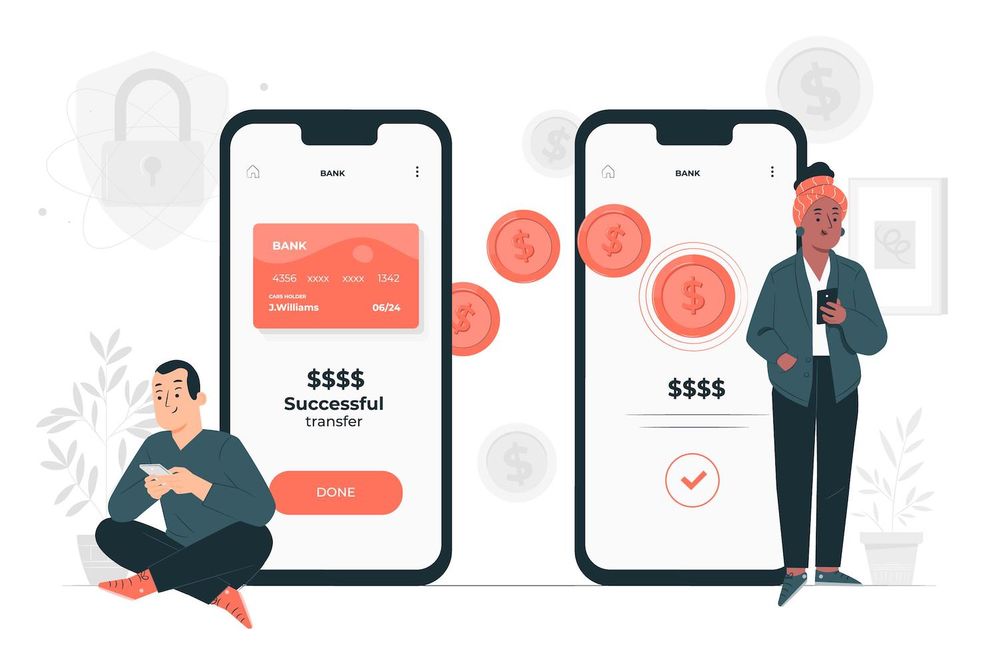Terms

As new technologies are released to the public there is a temptation to go deep into this new technology and incorporate it into every aspects of your business.
In this age that is artificial intelligence (AI) it is possible to consider incorporating chatbots or large-language models (LLMs) throughout your customer services. But here at we've observed that a compromise needs to find, according to Lauren Gilbert, Eyal Avital and Mau Fournier of our Customer Happiness team.
Particularly when it comes to customer service, AI can be beneficial however it must be used in moderation compared to an actual human professional in customer service. "Many people want to delegate 100% of customer support duties to the latest AI instruments, but there will be instances that require actual human interaction. The idea of delegating all tasks to AI is likely to leave a lot of your customers feeling more annoyed as they were prior to when they wrote them in," starts Mau.
Let's examine how, and when, you can mindfully incorporate AI in the customer service offerings you offer.
Important qualities needed for a successful customer service team
Firstly, what does perfect customer service look as? How can it best assist customers of a business?
"We attempt to live the five qualities of the PREACH model to maintain an approach that is customer-centric," starts Eyal Avital. "We want to be Proud responsible, compassionate, Articulate, Concise and Human.
The team agrees that empathy is perhaps one of the most crucial aspects. "Put yourself in the customers shoes and show empathy for their circumstances. Make them aware that their business matters to the people behind the company who are helping in running it," Lauren says. Lauren.
"Empathy is often overlooked" adds Mau. "You must show empathy to be able to comprehend the client's problem And you must display empathy in your response in order to let the customer feel understood, which also helps reduce their defensiveness if they're upset."
In addition, customers need help from someone who knows enough about the software to provide all the needed information - as well as the language to convey the product. "When you're dealing with a platform that you count on to run your business, getting support quickly from someone who knows the software inside and out, and can help you tackle a problem in a way that's easy to grasp and take action on, is crucial," thinks Lauren.
Customer service isn't just an exercise in box-checking: real assistance is crucial. "Don't simply answer a superficial inquiry - discover the reason behind the question; the goal they're trying to achieve," thinks Mau. "Help them with the core problem, then follow-up later to make sure they were able to get what they wanted. It is likely that people will leave satisfied if they sense that the person on the other side really wants to figure out ways to aid them," he adds.
Also, do not forget timeliness and clearness in your interactions. "You need to provide prompt aid, and communicate in a concise and clear manner," starts Lauren. Eyal adds: "You must be timely when you respond to your customers. You may offer an A+ rating, but if it's too late in the mind of your customer they'll be dissatisfied and negatively view the interaction."
When AI fails
There's no doubt that AI could be beneficial in the case of people who are busy with their business and entrepreneurs, but it's not always the best option. We believe there are a number of elements of great customer service which AI is unable to replicate.
Personalisation
In our experience so far, AI is missing the goal of providing solutions that can fulfill the needs of customers. We've come across numerous instances of assistance desk software that demands users to reply to a series of questions before getting an answer from an algorithm. In essence the automated response can only resolve a limited number of issues because it's not a 'one one size fits all' scenario.
"AI will certainly show competence and provide answers to questions - and they are often more adept than human beings but its skills may not be as up-to-date and in tune with your area of expertise as humans could be," says Mau. "It can be helpful when it comes to simple, quick conversations however it will not take ownership of being helpful and it can't follow up as a human would or at the very least, not as yet."
Longevity
Although LLM (AI) applications have improved their voice in their interactions with customers, there's a method to improve. "LLM apps can stick to the tone of conversation that is respectful however, it's far from genuine compassion from a human. The capacity of human compassion and the ability to connect an experience to its specific event isn't possible to replicate," says Mau.
Similarly, AI is all about the short-term. "LLMs tend to have a shorter attention span that's integrated into the system," he adds. "They won't remember the chat you had just six months ago about your customer's challenges, or how the content you provide them with in the future, or perhaps even that they love going on fishing excursions with their loved ones. Incorporating these information to new discussions will make members feel like you actually care."
AI is a great tool to help
However, this doesn't mean that AI can't be useful for customer services. There's definitely clear-cut possibilities to automate, as with any new piece of technology It's important to know how to innovate, when.
"We need to use AI to work on regular tasks that can be automated while keeping a human voice as an alternative for people with specific requests," starts Mau. " LLMs provide a great initial draft of replies but the best result will always come from the editing you make to that draft. Incorporate your personal voice into the conversation."
"What used to encompass the FAQ section of a site is now handled by robots or AI that can solve simple questions quickly and 24/7. Any questions that aren't answered by one-click or one-question solutions should then be redirected to support from a human," Eyal adds. "Otherwise the customer could get frustrated. It's like the old times of being stuck in a loop pressing numbers to connect to the correct department via the phone."
The integration with AI is a gradual process. "There's an evolution (crawl-walk-run) of integrating bots and LLMs," starts Eyal. "New companies should devote greater time and effort to the community with hands-on support. When they become more well-known, they can offboard their basic regular concerns and turn to LLM."
"AI can help you scale when your career grows, as more members are likely to raise more inquiries," says Mau. "Many of these will be basic questions which AI will take off your plate so you can concentrate on more complex issues."
"You can get away with relying on AI in the beginning However, I'd recommend against it. I'd suggest greater manual assistance for those who are beginning out. The questions you receive in the early phases of your career a treasure trove of feedback that can be used to understand your intended group and ways to make things better for them."
Conclusion
It appears that the "people-first" method we're adopting works well. It combines the expertise of a plethora of experts with the empathy only a human being could bring. Eyal states that the way we work helps to humanize Memberul as a brand "a mixture of empathy as well as sharing resources and making it fun by using emoticons and GIFs" Keep things fun and useful.
Mau gives some reviews from customers, who noted it was enjoyable talking "to someone who was a human being who had such a genuine approach to helping" and someone who was able to give them a personalized answer to your specific question. "That customer told me it was the best support they ever had!" smiles Mau.
Lauren recalls one customer that wrote to us asking for advice on members' retention. Using knowledge of her specific sector, and the specific trends in her own business We were able to give recommendations on a pricing plan which in turn increased the members life-time worth.
"You might be able to use AI to help you with this type of question but when it comes to decisions that could have a huge impact on your business, I'd venture to say that the vast majority of people don't want to rely on AI by itself and they shouldn't according to my view".
